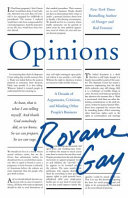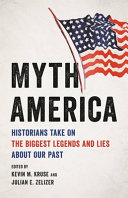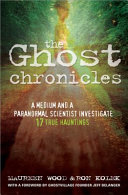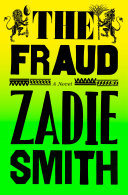Recommended Reads
-

The Cooking Gene
Culinary historian Michael W. Twitty takes readers to the white-hot center of this fight, tracing the roots of his own family and the charged politics surrounding the origins of soul food, barbecue, and all Southern cuisine. From the tobacco and rice farms of colonial times to plantation kitchens and backbreaking cotton fields, Twitty tells his family story through the foods that enabled his ancestors’ survival across three centuries. He sifts through stories, recipes, genetic tests, and historical documents, and travels from Civil War battlefields in Virginia to synagogues in Alabama to Black-owned organic farms in Georgia. Twitty reveals a truth that is more than skin deep—the power that food has to bring the kin of the enslaved and their former slaveholders to the table, where they can discover the real America together.
-

Ingredients
Zaidan, an MIT-trained chemist who cohosted CNBC’s hit Make Me a Millionaire Inventor and wrote and voiced several TED-Ed viral videos, makes chemistry more fun than Hogwarts as he reveals exactly what science can (and can’t) tell us about the packaged ingredients sold to us every day. Sugar, spinach, formaldehyde, cyanide, the ingredients of life and death, and how we know if something is good or bad for us—as well as the genius of aphids and their butts—are all discussed in exquisite detail at breakneck speed.
-

Fast Food Nation
In 2001, Fast Food Nation was published to critical acclaim and became an international bestseller. Eric Schlosser's exposé revealed how the fast food industry has altered the landscape of America, widened the gap between rich and poor, fueled an epidemic of obesity, and transformed food production throughout the world. The book changed the way millions of people think about what they eat and helped to launch today's food movement. In a new afterword for this edition, Schlosser discusses the growing interest in local and organic food, the continued exploitation of poor workers by the food industry, and the need to ensure that every American has access to good, healthy, affordable food. Fast Food Nation is as relevant today as it was a decade ago.
-

Dinner on Mars
Feeding a Martian is one of the greatest challenges in the history of agriculture. Will a Red Planet menu involve cheese and ice cream made from vats of fermented yeast? Will medicine cabinets overflow with pharmaceuticals created from engineered barley grown using geothermal energy? Will the protein of choice feature a chicken breast grown in a lab? Weird, wonderful, and sometimes disgusting, figuring out "what's for dinner on Mars" is far from trivial. If we can figure out how to sustain ourselves on Mars, we will know how to do it on Earth too.
-

Julie and Julia
Julie & Julia is the story of Julie Powell's attempt to revitalize her marriage, restore her ambition, and save her soul by cooking all 524 recipes in Julia Child's Mastering the Art of French Cooking, Volume I, in a period of 365 days.The result is a masterful medley of BridgetJones' Diary meets Like Water for Chocolate, mixed with a healthy dose of original wit, warmth, and inspiration that sets this memoir apart from most tales of personal redemption.
-

Cheese, Wine, and Bread
Delicious staples of a great meal, bread, cheese, and wine develop their complex flavors through a process known as fermentation. Katie Quinn spent months as an apprentice with some of Europe's most acclaimed experts to study the art and science of fermentation. Visiting grain fields, vineyards, and dairies, Katie brings the stories and science of these foods to the table, explains the process of each craft, and introduces the people behind them. Part artisanal survey, part travelogue, and part cookbook, featuring watercolor illustrations and gorgeous photographs, Cheese, Wine, and Bread is an outstanding gastronomic tour for foodies, cooks, artisans, and armchair travelers alike.
-

Gastro Obscura
This breathtaking guide transforms our sense of what people around the world eat and drink. Gastro Obscura reveals food’s central place in our lives as well as our bellies, touching on history–trace the network of ancient Roman fish sauce factories. Culture–picture four million women gathering to make rice pudding. Travel–scale China’s sacred Mount Hua to reach a tea house. Festivals–feed wild macaques pyramid of fruit at Thailand’s Monkey Buffet Festival. And hidden gems that might be right around the corner, like the vending machine in Texas dispensing full sized pecan pies. Dig in and feed your sense of wonder.
-

First Bite
Bee Wilson draws on the latest research from food psychologists, neuroscientists, and nutritionists to reveal that our food habits are shaped by a whole host of factors: family and culture, memory and gender, hunger and love. Taking the reader on a journey across the globe, Wilson introduces us to people who can only eat foods of a certain color; prisoners of war whose deepest yearning is for Mom's apple pie; a nine year old anosmia sufferer who has no memory of the flavor of her mother's cooking; toddlers who will eat nothing but hotdogs and grilled cheese sandwiches; and researchers and doctors who have pioneered new and effective ways to persuade children to try new vegetables. Wilson examines why the Japanese eat so healthily, whereas the vast majority of teenage boys in Kuwait have a weight problem—and what these facts can tell Americans about how to eat better.
-

We Are What We Eat
In We Are What We Eat, Alice Waters urges us to take up the mantle of slow food culture, the philosophy at the core of her life’s work. When Waters first opened Chez Panisse in 1971, she did so with the intention of feeding people good food during a time of political turmoil. Customers responded to the locally sourced organic ingredients, to the dishes made by hand, and to the welcoming hospitality that infused the small space—human qualities that were disappearing from a country increasingly seduced by takeout, frozen dinners, and prepackaged ingredients. Waters came to see that the phenomenon of fast food culture, which prioritized cheapness, availability, and speed, was not only ruining our health, but also dehumanizing the ways we live and relate to one another.
-

Buttermilk Graffiti
Edward Lee decided to hit the road and spent two years uncovering fascinating narratives from every corner of the country. There’s a Cambodian couple in Lowell, Massachusetts, and their efforts to re-create the flavors of their lost country. A Uyghur café in New York’s Brighton Beach serves a noodle soup that seems so very familiar and yet so very exotic—one unexpected ingredient opens a window onto an entirely unique culture. A beignet from Café du Monde in New Orleans, as potent as Proust’s madeleine, inspires a narrative that tunnels through time, back to the first Creole cooks, then forward to a Korean rice-flour hoedduck and a beignet dusted with matcha.
-

Animal, Vegetable, Junk
The history of Homo sapiens is usually told as a story of technology or economics. But there is a more fundamental driver: food. How we hunted and gathered explains our emergence as a new species and our earliest technology; our first food systems, from fire to agriculture, tell where we settled and how civilizations expanded. The quest for food for growing populations drove exploration, colonialism, slavery, even capitalism. A century ago, food was industrialized. Since then, new styles of agriculture and food production have written a new chapter of human history, one that's driving both climate change and global health crises. Best-selling food authority Mark Bittman offers a panoramic view of the story and explains how we can rescue ourselves from the modern wrong turn.
-

The Secret Life of Groceries
The miracle of the supermarket has never been more apparent. The men and women who stock our shelves and operate our warehouses are understood as 'essential' workers, providing a quality of life we all too easily take for granted. But the sad truth is that the grocery industry has been failing these workers for decades. Benjamin Lorr pulls back the curtain on the highly secretive grocery industry. Combining deep sourcing, immersive reporting, and sharp, often laugh-out-loud prose, Lorr leads a wild investigation, asking what does it take to run a supermarket? How does our food get on the shelves? And who suffers for our increasing demands for convenience and efficiency?
-

Opinions
Opinions is a collection of Roxane Gay's best nonfiction pieces from the past ten years. Covering a wide range of topics--politics, feminism, the culture wars, civil rights, and much more--with an all-new introduction in which she reflects on the past decade in America, this sharp, thought-provoking anthology will delight Roxane Gay's devotees and draw new readers to this inimitable talent.
-

Klan War
The Ku Klux Klan, which celebrated historian Fergus Bordewich defines as “the first organized terrorist movement in American history,” rose from the ashes of the Civil War. At its peak in the early 1870s, the Klan boasted many tens of thousands of members with a mission to obliterate the muscular democratic power of newly emancipated Black Americans and their white allies. To repel the virulent tidal wave of violence, President Ulysses S. Grant waged a two-term battle against both armed Southern enemies of Reconstruction and Northern politicians seduced by visions of postwar conciliation, testing the limits of the federal government in determining the extent of states’ rights.
-

The Leftover Woman
Jasmine Yang arrives in New York City from her rural Chinese village without money or family support, fleeing a controlling husband, on a desperate search for the daughter who was taken from her at birth, another female casualty of China's controversial One Child Policy. Meanwhile, publishing executive Rebecca Whitney seems to have it all: a prestigious family name and the wealth that comes with it, a high-powered career, a beautiful home, a handsome husband, and an adopted Chinese daughter she adores. But when an industry scandal threatens to jeopardize not only Rebecca's job but her marriage, this perfect world begins to crumble and her role in her own family is called into question.
-

Family Meal
Cam is living in Los Angeles and falling apart after the love of his life has died. Kai's ghost won't leave Cam alone; his spectral visits wild, tender, and unexpected. When Cam returns to his hometown of Houston, he crashes back into the orbit of his former best friend, TJ, and TJ's family bakery. TJ's not sure how to navigate this changed Cam, impenetrably cool and self-destructing, or their charged estrangement. Can they find a way past all that has been said - and left unsaid - to save each other?
-

Kingdom Quarterback
In three seasons, Patrick Mahomes has won a Super Bowl and competed in another, earned the titles of First Team All-Pro, NFL Offensive Player of the Year, and league MVP, and turned the Kansas City Chiefs from famed playoff failures into the most successful team in the NFL. With his unique and groundbreaking playing style, and winning personality both on and off the field, Mahomes has become a truly transcendent quarterback in a journey that mirrors and accentuates the rebirth of the once swingin’ cow town of Kansas City, Missouri. Kansas City and Mahomes represent the story of the midwestern American city—how they grew, how they shaped the country, how the sport of football came to mean so much to them, how they failed, and how they are changing.
-

Myth America
In Myth America, historians Kevin Kruse and Julian Zelizer have assembled an all-star team of historians to provide textured analysis that explains what we get wrong about the past. Drawing on their immense knowledge of scholarship and their own primary research, these contributors provide correctives to the ways conservatives distort history to serve the needs of their anti-democratic agenda. Taken together, the essays unveil how corporate interests and right-wing politicians use bad history to fan the flames of white resentment and unravel America's social safety net.
-

Schrader's Chord
After his estranged father’s mysterious death, Charlie Remick returns to Seattle to help with the funeral. His father left him two parting gifts: the keys to the family record store and a strange black case containing four antique records that, according to legend, can open a gate to the land of the dead. When Charlie, his sister, and their two friends play the records, they unwittingly open a floodgate of unspeakable horror. As the darkness descends, they are stalked by a relentless, malevolent force and see the dead everywhere they turn. The only person who can help them is Charlie’s resurrected father, who knows firsthand the awesome power the records have unleashed.
-

My Roommate Is a Vampire
Cassie Greenberg loves being an artist, but it’s a tough way to make a living. On the brink of eviction, she’s desperate when she finds a too-good-to-be-true apartment in a beautiful Chicago neighborhood. Her new roommate Frederick J. Fitzwilliam is far from normal. He sleeps all day, is out at night on business, and talks like he walked out of a regency romance novel. He doesn’t look half bad shirtless. But when Cassie finds bags of blood in the fridge that definitely weren’t there earlier, Frederick has to come clean. Cassie’s sexy new roommate is a vampire. And he has a proposition for her.
-

Chinese Menu
From fried dumplings to fortune cookies, here are the tales behind your favorite foods.
Do you know the stories behind delectable dishes—like the fun connection between scallion pancakes and pizza? Or how dumplings cured a village’s frostbitten ears? Or how wonton soup tells about the creation of the world?
Separated into courses like a Chinese menu, these tales—based in real history and folklore—are filled with squabbling dragons, magical fruits, and hungry monks. This book will bring you to far-off times and marvelous places, all while making your mouth water. And, along the way, you might just discover a deeper understanding of the resilience and triumph behind this food, and what makes it undeniably American.
-

Tango Red Riding Hood
An irresistible rhythm tugs at Moni's heart as she dances down the path to la casa de Abuela. But Moni's corazón skips a beat when she spies a strange set of ears - setting her own orejas on alert. Lobo must be near!
In this modern interpretation of a classic fairytale, readers tango along with Moni as she sways to the music that follows her through the woods. In a clearing, Moni stumbles upon Lobo . . . playing a bandoneón? Moni can't help from tap-tap-tapping to the tune, but when the music ends, Moni's pace turns from tango to milonga after Lobo says he ate Abuela. Readers are certain to be both surprised and relieved when they learn Abuela is alive and well, and waiting on another guest - her amigo, Lobo.
-

All the Lovely Bad Ones Graphic Novel
Travis and his sister, Corey, can't resist a good trick. When they learn that their grandmother's quiet Vermont inn, where they're spending the summer, has a history of ghost sightings, they decide to do a little "haunting" of their own. Before long, their supernatural pranks have tourists flocking to the inn, and business booms.
But Travis and Corey soon find out that theirs aren't the only ghosts at Fox Hill Inn. Their thoughtless games have awakened something dangerous, something that should have stayed asleep. Can these siblings lay to rest the restless spirits they’ve disturbed?
-

The Lost Library
When a mysterious little free library (guarded by a large orange cat) appears overnight in the small town of Martinville, eleven-year-old Evan plucks two weathered books from its shelves, never suspecting that his life is about to change.
Evan and his best friend Rafe quickly discover a link between one of the old books and a long-ago event that none of the grown-ups want to talk about. The two boys start asking questions whose answers will transform not only their own futures, but the town itself.
Told in turn by a ghost librarian named Al, an aging (but beautiful) cat named Mortimer, and Evan himself, The Lost Library is a timeless story from award-winning authors Rebecca Stead and Wendy Mass. It’s about owning your truth, choosing the life you want, and the power of a good book (and, of course, the librarian who gave it to you). -

The Story of Gumluck the Wizard
This is a story about magic, if you like that kind of thing. It is also a story about a ghost with amnesia, an unpopular fairy, an ungrateful little town, and an extremely wise and helpful raven (who happens to be a pretty talented storyteller). But mostly, it is about a friendly little wizard who lives inside a big hill and really, really, really wants to be a hero. His name is Gumluck, and he is a bumbling noodlehead.
-

Cornbread & Poppy at the Museum
Cornbread LOVES spending time inside. Poppy does not. Cornbread ADORES in-depth research. Poppy does not. Cornbread is THRILLED to visit The Moonville Museum. Poppy…is not. But Cornbread and Poppy are the best of friends, so when Cornbread is invited to attend the Founders Gala to see the unveiling of a surprise new exhibit, Poppy agrees to be his guest. Their evening is full of spectacular treasures, including hand-carved hairbrushes, diamond-encrusted perfume sprayers, and a solid gold ice cream scoop. What other wonders will these mice discover?
-

Time of the Turtle King
It's just a regular day when ordinary kids Jack and Annie are whisked away in the magic tree house to the Galapagos islands, where they must save a giant tortoise from an erupting volcano! But what do Jack and Annie know about saving turtles?! Plenty, thanks to some magic that makes them experts. A helicopter ride, rushing lava, and a whole lot of determination make this one adventure Jack and Annie will never forget!
-

Little Dumplings
-

Cat on the Run in Cat of Death!
What happens when the world's biggest cat video star gets accused of a crime she didn't commit? She becomes a cat on the run, that's what.
But how do you avoid capture and prove your innocence when you are the most famous feline on the planet? Well, it ain't easy.
Follow Princess Beautiful -- for that is her name -- as she goes from meme megastar #1 to public enemy #1 and cheer her on as she fights to clear her name.
Is she a super villain? An internet-famous buffoon? Or a butt-kicking gal who's just been seriously underestimated?
YOU be the judge...
-

Hunger: A Memoir of (My) Body
Stranger Than Fiction Book Club Pick - November 2023
-

People Who Eat Darkness
Stranger Than Fiction Book Club Pick - October 2023
-

The Line Becomes a River
Stranger Than Fiction Book Club Pick - September 2023
-

Take the Lead
At age six, Sasha DiGiulian stepped into a climbing gym for the first time and was competing within a year. With a fierce love for the climb and incredible natural talent, Sasha soon won her first National Sport Climbing Championship at only seventeen, and a year later took the title of World Champion. But under the accolades, she was just another young woman learning how to handle the intense scrutiny of social media and dealing with body dysmorphia, all while quietly facing a potentially career-ending injury.
-

Piecemeal
Piecemeal presents a way for cooks to create a flexible repertoire of meals without doing a ton of work at one time. Prepare the component when you have some time, then use it to enhance or center meals throughout the week, even on your most hectic evenings. The three recipes that pair with each component are fully prepared, from start to finish, in as little as 5 minutes and no more than 1 hour (for a project recipe with a bit more prep).
-

The Radcliffe Ladies' Reading Club
Massachusetts, 1954. Tess, Caroline, Evie, and Merritt become fast friends in the sanctuary of Alice Campbell's monthly reading club at The Cambridge Bookshop, where they escape the pressures of being newly independent college women in a world that seems to want to keep them in the kitchen. But they each embody very different personalities, and when a member of the group finds herself shattered, everything they know about each other--and themselves--will be called into question.
-

Lies and Other Love Languages
Bestselling advice columnist Vandy Guru built her career teaching others how to live honestly and courageously, but after the loss of her husband, Vandy's public veneer can barely conceal her grief. Aspiring choreographer Mallika Guru signs up for a genetic study to find out why she's so different from her accomplished family. But the results reveal her whole life to be a lie, and Rani seems to be the only one who knows the truth. Rani Parekh sacrificed everything for Vandy once. But to hold on to the life she's rebuilt, she must confront her troubled history and face Vandy and Mallika.
-

This Winter
A very special Heartstopper story set over a challenging holiday season...
Reuniting Tori Spring, her little brother Charlie, and Charlie's boyfriend Nick, this novella sees the Spring siblings brave a particularly difficult festive season.
-

Rez Ball
These days, Tre Brun is happiest when he is playing basketball on the Red Lake Reservation high school team--even though he can't help but be constantly gut-punched with memories of his big brother, Jaxon, who died in an accident.
When Jaxon's former teammates on the varsity team offer to take Tre under their wing, he sees this as his shot to represent his Ojibwe rez all the way to their first state championship. This is the first step toward his dream of playing in the NBA, no matter how much the odds are stacked against him.
But stepping into his brother's shoes as a star player means that Tre can't mess up. Not on the court, not at school, and not with his new friend, gamer Khiana, who he is definitely not falling in love with.
After decades of rez teams almost making it, Tre needs to take his team to state. Because if he can live up to Jaxon's dreams, their story isn't over yet.
-

The Brothers Hawthorne
Grayson Hawthorne was raised as the heir apparent to his billionaire grandfather, taught from the cradle to put family first. Now the great Tobias Hawthorne is dead and his family disinherited, but some lessons linger. When Grayson's half-sisters find themselves in trouble, he swoops in to do what he does best: take care of the problem--efficiently, effectively, mercilessly. And without getting bogged down in emotional entanglements.
Jameson Hawthorne is a risk-taker, a sensation-seeker, a player of games. When his mysterious father appears and asks for a favor, Jameson can't resist the challenge. Now he must infiltrate London's most exclusive underground gambling club, which caters to the rich, the powerful, and the aristocratic, and win an impossible game of greatest stakes. Luckily, Jameson Hawthorne lives for impossible.
Drawn into twisted games on opposite sides of the globe, Grayson and Jameson--with the help of their brothers and the girl who inherited their grandfather's fortune--must dig deep to decide who they want to be and what each of them will sacrifice to win.
-

Ride or Die
Best friends Loli Crawford and Ryan Pope have earned their nickname, the “Bonnie and Clyde of Woolridge High.” From illegal snack swapping in kindergarten to reckless car surfing in high school, they have been causing trouble in their uptight California town forever. But everyone knows that the mischief starts with Loli; when it comes to chasing thrills, drama, and adventure, no one is on her level.
At least until Loli throws the wildest party Woolridge High has ever seen and meets X, a strange, unidentified boy in the coat closet, who challenges her to a game she can’t refuse—one that promises to put her love of danger to the ultimate test.
Loli and X begin an anonymous correspondence, exchanging increasingly risky missions. Loli’s fun has always been free and easy, but things spin out of control as she attempts to one-up X’s every move. As Loli risks losing everything—including her oldest friend—she’ll face the most dangerous thing of all: falling for someone she shouldn’t. -

The Lightstruck
Vesper Vale sacrificed everything to save her city from the cursed storm. After becoming a vessel of The Great Queen, Vesper awakes from a slumber three years after her life altering choice.
What she finds isn't a home freed from the terror of the storm, but one where its citizens are besieged by the even more sinister force of The Great King and his growing army of the lightstruck--once regular citizens who are now controlled by the ominous light encroaching on the city. And the people are all looking to Vesper, now revered as a goddess after her sacrifice, as their city's only hope.
To save the rings from the Great King, Vesper must contend with the obligations of being a deity to her people and the growing chasm between her and Dalca, the prince she swore never to love. Haunted by the guilt of their past choices and faced with the pressures of a city near ruin, Vesper and Dalca find themselves torn between the growing factions within the city and the royal court.
But in order to save her city from the light, Vesper must face the power most outside of her control--the goddess within.
-

Unexpecting
Benjamin Morrison is about to start junior year of high school and while his family is challenging, he is pretty content with his life, with his two best friends, and being a part of the robotics club. Until an experiment at science camp has completely unexpected consequences.
He is going to be a father. Something his mother was not expecting after he came out as gay and she certainly wasn’t expecting that he would want to raise the baby as a single father. But together they come up with a plan to prepare Ben for fatherhood and fight for his rights.
The weight of Ben’s decision presses down on him. He’s always tired, his grades fall, and tension rises between his mom and stepfather. He’s letting down his friends in the robotics club whose future hinges on his expertise. If it wasn’t for his renewed friendship (and maybe more) with a boy from his past, he wouldn’t be able to face the daily ridicule at school or the crumbling relationship with his best friends.
With every new challenge, every new sacrifice he has to make, Ben questions his choice. He’s lived with a void in his heart where a father’s presence should have been, and the fear of putting his own child through that keeps him clinging to his decision. When the baby might be in danger, Ben’s faced with a heart-wrenching realization: sometimes being a parent means making the hard choices even if they are the choices you don't want to make... -

Something Close to Magic
It’s not all sugar and spice at Basil’s Bakery, where seventeen-year-old Aurelie is an overworked, underappreciated apprentice. Still, the job offers stability, which no-nonsense Aurelie values highly, so she keeps her head down and doesn’t dare to dream big—until a stranger walks in and hands her a set of Seeking stones. In a country where Seeking was old-fashioned even before magic went out of style, it’s a rare skill, but Aurelie has it.
The stranger, who turns out to be a remarkably bothersome bounty hunter named Iliana, asks for Aurelie’s help rescuing someone from the dangerous Underwood—which sounds suspiciously like an adventure. When the someone turns out to be Prince Hapless, the charming-but-aptly-named prince, Aurelie’s careful life is upended. Suddenly, she finds herself on a quest filled with magic portals, a troll older than many trees (and a few rocks), and dangerous palace intrigue.
Even more dangerous are the feelings she’s starting to have for Hapless. The more time Aurelie spends with him, the less she can stand the thought of going back to her solitary but dependable life at the bakery. Must she choose between losing her apprenticeship—or her heart? -

House of Marionne
17 year-old Quell has lived her entire life on the run. She and her mother have fled from city to city, in order to hide the deadly magic that flows through Quell’s veins.
Until someone discovers her dark secret.
To hide from the assassin hunting her, and keep her mother out of harm’s way, Quell reluctantly inducts into a debutante society of magical social elites called the Order that she never knew existed. If she can pass their three rites of membership, mastering their proper form of magic, she’ll be able to secretly bury her forbidden magic forever.
If caught, she will be killed.
But becoming the perfect debutante is a lot harder than Quell imagined, especially when there’s more than tutoring happening with Jordan, her brooding mentor and— assassin in training.
When Quell uncovers the deadly lengths the Order will go to defend its wealth and power, she’s forced to choose: embrace the dark magic she’s been running from her entire life or risk losing everything, and everyone, she’s grown to love.
Still, she fears the most formidable monster she’ll have to face is the one inside.
-

I Feed Her to the Beast and the Beast Is Me
Laure Mesny is a perfectionist with an axe to grind. Despite being constantly overlooked in the elite and cutthroat world of the Parisian ballet, she will do anything to prove that a Black girl can take center stage. To level the playing field, Laure ventures deep into the depths of the Catacombs and strikes a deal with a pulsating river of blood.
The primordial power Laure gains promises influence and adoration, everything she’s dreamed of and worked toward. With retribution on her mind, she surpasses her bitter and privileged peers, leaving broken bodies behind her on her climb to stardom.
But even as undeniable as she is, Laure is not the only monster around. And her vicious desires make her a perfect target for slaughter. As she descends into madness and the mystifying underworld beneath her, she is faced with the ultimate choice: continue to break herself for scraps of validation or succumb to the darkness that wants her exactly as she is—monstrous heart and all. That is, if the god-killer doesn’t catch her first.
-

Suddenly a Murder
To celebrate the end of high school, Izzy Morales joins her ride-or-die Kassidy and five friends on a 1920s–themed getaway at the glamorous Ashwood Manor. There, Izzy and her friends party in vintage dresses and expensive diamonds—until Kassidy’s boyfriend turns up dead.
Murdered, investigators declare when they arrive at the scene, and now every party guest is a suspect. There’s the girlfriend, in love. The other girl, in despair. The old friend, forlorn. The new friend, distressed. The brooding enigma. And then, there’s Izzy—the girl who brought the knife.
To find the killer, everyone must undergo a grueling interrogation, all while locked in an estate where, suddenly, the greatest luxury is innocence. -

A Little Like Waking
Zelda is stuck in a dream. A very strange dream, where people can fly, bears sneeze money, and her childhood cat, Patches, is somehow alive - despite being run over years ago. Things only get stranger when Zelda meets Langston, a sweet if overly timid guy who feels more real to her than anyone she’s ever met.
As Zelda and Langston explore the far reaches of the dreamscape together, they find themselves growing closer and closer. But what they uncover along the way pushes them towards a truth neither of them wants to face. Will it turn out that he's the guy of her dreams, or is she the girl of his?
-

Darkhearts
When David quit his band, he missed his shot at fame, trapped in an ordinary high school life while his ex–best friend, Chance, became the hottest teen pop star in America.
Then tragedy throws David and Chance back into contact. As old wounds break open, the boys find themselves trading frenemy status for a confusing, secret romance—one that could be David’s ticket back into the band and the spotlight.
As the mixture of business and pleasure becomes a powder keg, David will have to choose: Is this his second chance at glory? Or his second chance at Chance? -

The Only Girl in Town
For July Fielding, nothing has been the same since that summer before senior year.
Once, she had Alex, her loyal best friend, the one who always had her back. She had Sydney, who pushed her during every cross-country run, and who sometimes seemed to know July better than she knew herself. And she had Sam. Sam, who told her she was everything and left her breathless with his touch.
Now, July is alone. Every single person in her small town of Lithia has disappeared. No family. No Alex or Sydney. No Sam. July’s only chance at unraveling the mystery of their disappearance is a series of objects, each a reminder of the people she loved most. And a mysterious message: GET TH3M BACK.
-

Your Lonely Nights Are Over
Dearie and Cole are inseparable, unlikeable, and (in bad luck for them) totally unbelievable.
From the day they met, Dearie and Cole have been two against the world. But whenever something bad happens at Stone Grove High School, they get blamed. Why? They’re beautiful, flirtatious, dangerously clever queen bees, and they’re always ready to call out their fellow students. But they’ve never faced a bigger threat than surviving senior year, when Mr. Sandman, a famous, never-caught serial killer emerges from a long retirement—and his hunting ground is their school Queer Club.
As evidence and bodies begin piling up and suspicion points at Dearie and Cole, they will need to do whatever it takes to unmask the real killer before they and the rest of Queer Club are taken down. But they’re not getting away from the killer without a fight.
Along the way, they must confront dark truths hidden beneath the surface of their small desert community. When the world is stacked against them and every flop they know is a suspect, can Dearie and Cole stop Mr. Sandman’s rampage? Or will their lonely nights soon be over... -

The Lost Village
Documentary filmmaker Alice Lindstedt has been obsessed with the vanishing residents of the old mining town, dubbed “The Lost Village,” since she was a little girl. In 1959, her grandmother’s entire family disappeared in this mysterious tragedy, and ever since, the unanswered questions surrounding the only two people who were left—a woman stoned to death in the town center and an abandoned newborn—have plagued her. She’s gathered a small crew of friends in the remote village to make a film about what really happened. Not long after they’ve set up camp, equipment is destroyed. People go missing. As doubt breeds fear and their very minds begin to crack, one thing becomes startlingly clear to Alice: They are not alone.
-

Home Before Dark
Twenty-five years ago, Maggie Holt and her parents moved into Baneberry Hall, a rambling Victorian estate in the Vermont woods. Three weeks later they fled in the dead of night. His subsequent best-selling memoir, House of Horrors, detailed the supernatural happenings and malevolent spirits at Baneberry. Maggie was too young to remember any of the horrific events that supposedly took place. As an adult she doesn’t believe a word of her father’s claims. She inherits Baneberry Hall after his death and returns to renovate and sell the place. As Maggie starts to experience strange occurrences ripped from the pages of her father’s book, the truth she uncovers about the house’s dark history will challenge everything she believes.
-

Ghostland
Colin Dickey is on the trail of America’s ghosts. Crammed into old houses and hotels, abandoned prisons and empty hospitals, the spirits that linger continue to capture our collective imagination. Dickey embarks on a journey across the continental United States to decode and unpack the American history repressed in our most famous haunted places. Paying attention not only to the true facts behind a ghost story, but also to the ways in which changes to those facts are made, he paints a version of American history left out of the textbooks, one of things left undone, crimes left unsolved.
-

Mexican Gothic
After receiving a frantic letter from her newly-wed cousin begging for someone to save her from a mysterious doom, Noemí Taboada heads to High Place, a distant house in the Mexican countryside. Noemí is is not afraid: Not of her cousin’s handsome new English husband, who is both menacing and alluring; not of his father, the ancient patriarch who seems to be fascinated by Noemí; and not even of the house itself, which begins to invade Noemi’s dreams with visions of blood and doom. The family’s youngest son, shy and gentle, might also be hiding dark knowledge of his family’s past. And Noemí, mesmerized by the terrifying yet seductive world of High Place, may soon find it impossible to ever leave this enigmatic house behind.
-

Rebecca
In an isolated gray stone mansion on the windswept Cornish coast, the second Mrs. Maxim de Winter recalls the chilling events that transpired as she began her new life as the young bride of a husband she barely knew. In every corner of every room was a past devotedly preserved by the sinister housekeeper, Mrs. Danvers: a suite immaculate and untouched, clothing laid out and ready to be worn, but not by any of the great house's current occupants. With an eerie presentiment of evil tightening her heart, the second Mrs. de Winter walked in the shadow of her mysterious predecessor, determined to uncover the darkest secrets and shattering truths about Maxim's first wife—the late and hauntingly beautiful Rebecca.
-

What Moves the Dead
When Alex Easton, a retired soldier, receives word that their childhood friend Madeline Usher is dying, they race to the ancestral home of the Ushers in the remote countryside of Ruritania. What they find there is a nightmare of fungal growths and possessed wildlife, surrounding a dark, pulsing lake. Madeline sleepwalks and speaks in strange voices at night, and her brother Roderick is consumed with a mysterious malady of the nerves. Aided by a redoubtable British mycologist and a baffled American doctor, Alex must unravel the secret of the House of Usher before it consumes them all.
-

Summer Sons
Andrew and Eddie did everything together until Eddie left Andrew behind to start his graduate program at Vanderbilt. Six months later, only days before Andrew was to join him in Nashville, Eddie dies of an apparent suicide. As Andrew searches for the truth of Eddie’s death, he uncovers the lies and secrets left behind by the person he trusted most, discovering a family history soaked in blood and death. Whirling between the backstabbing academic world where Eddie spent his days and the circle of hot boys, fast cars, and hard drugs that ruled Eddie’s nights, the walls Andrew has built against the world begin to crumble.
-

Survivor Song
Massachusetts has been overrun by an insidious rabies-like virus. Those infected lose their minds in an hour or less and are driven to bite and infect as many others as they can before they inevitably succumb. Hospitals are inundated with the sick and dying, and hysteria has taken hold. Dr. Ramola "Rams" Sherman receives a frantic phone call from pregnant friend Natalie. Natalie's husband has been killed by an infected neighbor. In a failed attempt to save him, Natalie, too, was bitten. Natalie's only chance of survival is to get to a hospital as quickly as possible to receive a rabies vaccine. She and Rams desperately make their way through a hostile landscape filled with dangers beyond their worst nightmares.
-

The Luminous Dead
When Gyre Price lied her way into this expedition, she thought she’d be mapping mineral deposits, and that her biggest problems would be cave collapses and gear malfunctions. She also thought that the fat paycheck meant she’d get a skilled surface team, monitoring her suit and environment, keeping her safe. Instead, she got Em. Em sees nothing wrong with controlling Gyre’s body with drugs or withholding critical information to “ensure the smooth operation” of her expedition. On her own in this mysterious, deadly place, surrounded by darkness and the unknown, Gyre must overcome more than just the dangerous terrain and the Tunneler which calls underground its home if she wants to make it out alive—she must confront the ghosts in her own head.
-

Spook: Science Tackles the Afterlife
"What happens when we die? Does the light just go out and that's that—the million-year nap? Or will some part of my personality, my me-ness persist? What will that feel like? What will I do all day? Is there a place to plug in my lap-top?" In an attempt to find out, Mary Roach brings her tireless curiosity to bear on an array of contemporary and historical soul-searchers: scientists, schemers, engineers, mediums, all trying to prove (or disprove) that life goes on after we die.
-

The Haunting of Hill House
First published in 1959, Shirley Jackson's The Haunting of Hill House has been hailed as a perfect work of unnerving terror. It is the story of four seekers who arrive at a notoriously unfriendly pile called Hill House: Dr. Montague, an occult scholar looking for solid evidence of a "haunting"; Theodora, his lighthearted assistant; Eleanor, a friendless, fragile young woman well acquainted with poltergeists; and Luke, the future heir of Hill House. At first, their stay seems destined to be merely a spooky encounter with inexplicable phenomena. But Hill House is gathering its powers--and soon it will choose one of them to make its own.
-

My Best Friend's Exorcism
The year is 1988. High school sophomores Abby and Gretchen have been best friends since fourth grade. But after an evening of skinny-dipping goes disastrously wrong, Gretchen begins to act…different. She’s moody. She’s irritable. And bizarre incidents keep happening whenever she’s nearby. Abby’s investigation leads her to some startling discoveries—and by the time their story reaches its terrifying conclusion, the fate of Abby and Gretchen will be determined by a single question: Is their friendship powerful enough to beat the devil?
-

Gallows Hill
It's been more than a decade since Margot Hull last saw her childhood home. She was young enough when she was sent away that she barely remembers its dark passageways and secret corners. But now she's returned to bury her parents and reconnect with the winery that is her family's legacy--and the bloody truth of exactly what lies buried beneath the crumbling estate. Alone in the sprawling, dilapidated building, Margot is forced to come face to face with the horrors of the past--and realize that she may be the next victim of a house that never rests.
-

The Ghost Chronicles
A trance medium and a paranormal scientist team up in this spellbinding collection of 17 supernatural mysteries, a mere sampling of the spooky episodes in their vast ghost hunting case files. Former skeptic Ron Kolek, with his infrared camera and EMF meter, and fifth-generation psychic Maureen Wood, with her sixth sense and pendulum, have become experts in investigating ghosts, whether they're helping the descendant of an accused witch, checking out the spirits of Lizzie Borden's slain parents, or assisting a monk with an exorcism.
-

White Horse
Kari James, Urban Native, is a fan of heavy metal, ripped jeans, Stephen King novels, and dive bars. After her cousin Debby brings her a traditional bracelet that once belonged to Kari’s mother, who abandoned her at age two, Kari starts seeing disturbing visions of her mother and a mysterious creature. When the visions refuse to go away, Kari must uncover what really happened to her mother all those years ago. Her journey toward a truth long denied by both her family and law enforcement forces her to confront her dysfunctional relationships, thoughts about a friend she lost in childhood, and her desire for the one thing she’s always wanted but could never have.
-

The Golden Gate
In Berkeley, California, in 1944, Homicide Detective Al Sullivan has just left the swanky Claremont Hotel after a drink in the bar when presidential candidate Walter Wilkinson is assassinated in one of the rooms upstairs. Strangely, Sullivan’s investigation brings up the specter of another tragedy at the Claremont ten years earlier: the death of seven-year-old Iris Stafford, a member of the Bainbridge family. The many threads of the case keep leading Sullivan back to the three remaining Bainbridge heiresses, now adults: Iris’s sister, Isabella, and her cousins Cassie and Nicole. Determined not to let anything distract him from the truth, Sullivan follows his investigation to its devastating conclusion.
-

The Last Devil to Die
It's rarely a quiet day for the Thursday Murder Club. Shocking news reaches them—an old friend has been killed, and a dangerous package he was protecting has gone missing. The gang's search leads them into the antiques business, where the tricks of the trade are as old as the objects themselves. As they encounter drug dealers, art forgers, and online fraudsters—as well as heartache close to home—Elizabeth, Joyce, Ron, and Ibrahim have no idea whom to trust. With the body count rising, the clock ticking down, and trouble firmly on their tail, has their luck finally run out?
-

Crossings
Some 40 million miles of roadways encircle the earth. While roads are so ubiquitous they're practically invisible to us, wild animals experience them as entirely alien forces of death and disruption. In Crossings, environmental journalist Ben Goldfarb travels throughout the United States and around the world to investigate how roads have transformed our planet. A million animals are killed by cars each day in the U.S. alone, but as the new science of road ecology shows, the harms of highways extend far beyond roadkill.
-

Of Time and Turtles
When acclaimed naturalist Sy Montgomery and wildlife artist Matt Patterson arrive at Turtle Rescue League, they are greeted by hundreds of turtles recovering from injury and illness. Endangered by cars and highways, pollution and poachers, these turtles--with wounds so severe that even veterinarians would have dismissed them as fatal--are given a second chance at life. Sy and Matt immerse themselves in the delicate work of protecting turtle nests, incubating eggs, rescuing sea turtles, and releasing hatchlings to their homes in the wild. We follow the snapping turtle Fire Chief on his astonishing journey as he battles against injuries incurred by a truck
-

Doppelganger
Celebrated activist and public intellectual Naomi Klein was confronted with a doppelganger whose views she found abhorrent but whose name and public persona were sufficiently similar to her own that many people got confused about who was who. Destabilized, she lost her bearings, until she began to understand the experience as one manifestation of a strangeness many of us have come to know but struggle to define: AI-generated text is blurring the line between genuine and spurious communication; New Age wellness entrepreneurs turned anti-vaxxers are scrambling familiar political allegiances of left and right; and liberal democracies are teetering on the edge of absurdist authoritarianism, even as the oceans rise. Under such conditions, reality itself seems to have become unmoored.
-

To Infinity and Beyond
Drawing on mythology, history, and literature--alongside his trademark wit and charm--Tyson and StarTalk senior producer Lindsey Nyx Walker bring planetary science down to Earth and principles of astrophysics within reach. In this entertaining book, illustrated with vivid photographs and art, readers travel with him through space and time, starting with the Big Bang and voyaging to the far reaches of the universe and beyond. Along the way, science greets pop culture as Tyson explains the triumphs--and bloopers--in Hollywood's blockbusters: all part of an entertaining ride through the cosmos.
-

Chenneville
Traveling through the unforgiving landscape of a shattered nation in the midst of Reconstruction, former Union soldier John braves winter storms and confronts desperate people in pursuit of his quarry, the brutal murderer of John's beloved sister and her family. Untethered, single-minded in purpose, he will not be deterred. Not by the U.S. Marshal who threatens to arrest him for murder should he succeed. And not by Victoria Reavis, the telegraphist aiding him in his death-driven quest, yet hoping he'll choose to embrace a life with her instead.
-

What Kind of Mother
After striking out on her own as a teen mom, Madi Price is forced to return to her hometown of Brandywine, Virginia, with her seventeen-year-old daughter. She scrapes together a living as a palm reader at the local farmers market where she reconnects with old high school flame Henry McCabe whose infant son, Skyler, went missing five years ago. Everyone in town is sure Skyler is dead, but when Madi reads Henry’s palm, she’s haunted by strange and disturbing visions that suggest otherwise. As she follows the thread of these visions, Madi discovers a terrifying nightmare waiting at the center of the labyrinth—and it’s coming for everyone she holds dear.
-

Small Teaching
In Small Teaching, James Lang presents a strategy for improving student learning with a series of small but powerful changes that make a big difference―many of which can be put into practice in a single class period. These are simple interventions that can be integrated into pre-existing techniques, along with clear descriptions of how to do so. Inside, you’ll find brief classroom or online learning activities, one-time interventions, and small modifications in course design or student communication. These small tweaks will bring your classroom into alignment with the latest evidence in cognitive research.
-

Love Stories: Uplifting True Stories about Love from the InternationallyBestselling Author of Boy Swallows Universe
Inspired by a personal moment of profound love and generosity, Trent Dalton, bestselling author and one of Australia's finest journalists, spent two months in 2021 speaking to people from all walks of life, asking them one simple and direct question: 'Can you please tell me a love story?' The result is an immensely warm, poignant, funny and moving book about love in all its guises, including observations, reflections and stories of people falling into love, falling out of love, and never letting go of the loved ones in their hearts. A heartfelt, deep, wise and tingly tribute to the greatest thing we will never understand and the only thing we will ever really need: love.
-

The September House
When Margaret and her husband Hal bought the large Victorian house on Hawthorn Street, they couldn’t believe they finally had a home of their own. Then they discovered the hauntings. Every September, the walls drip blood. The ghosts of former inhabitants appear, and all of them are terrified of something that lurks in the basement. But Margaret is staying. It’s her house. After four years Hal can’t take it anymore, and he leaves abruptly. Their daughter Katherine—who knows nothing about the hauntings—arrives, intent on looking for her missing father. To make things worse, September has just begun.
-

The Fraud
It is 1873. Mrs. Eliza Touchet is the Scottish housekeeper—and cousin by marriage—of a once-famous novelist, now in decline, William Ainsworth, with whom she has lived for thirty years. Andrew Bogle, meanwhile, grew up enslaved on the Hope Plantation, Jamaica. When Andrew Bogle finds himself in London, star witness in a celebrated case of imposture, he knows his future depends on telling the right story. The “Tichborne Trial”—wherein a lower-class butcher from Australia claimed he was in fact the rightful heir of a sizable estate and title—captivates Mrs. Touchet and all of England. Is Sir Roger Tichborne really who he says he is? In a world of hypocrisy and self-deception, deciding what is real proves a complicated task. . . .
-

Assistant to the Villain
ASSISTANT WANTED: Notorious, high-ranking villain seeks loyal, levelheaded assistant for unspecified office duties, supporting staff for random mayhem and terror, and other Dark Things In General. Discretion a must. Excellent benefits. With ailing family to support, Evie Sage's employment status isn't just important, it's vital. So when a mishap with Rennedawn’s most infamous Villain results in a job offer—naturally, she says yes. No job is perfect, of course, but even less so when you develop a teeny crush on your terrifying, temperamental, and undeniably hot boss. Don’t find evil so attractive, Evie.
-

Night Will Find You
Vivvy Bouchet was only ten when she saved a boy’s life by making an impossible prediction. A wunderkind scientist, she just wants to be left in peace to scan the desert Texas sky with her telescopes in one of the darkest places on earth. When the boy she saved, now a Fort Worth cop, begs for her help on a cold case, she can’t turn him down. Conspiracy theorists feed the frenzy that Lizzie Solomon is still buried in the crumbling walls of a Victorian mansion while her mother, convicted of killing her, loudly proclaims her innocence. Vivvy falls into the mystery of why Lizzie has never been found.
-

What We Remember Will Be Saved
Journalist and scholar Stephanie Saldaña, who lived in Syria before the war, sets out on a journey across nine countries to meet refugees and learn what they salvaged from the ruins when they escaped. Now, in the narratives of six extraordinary women and men, from Mt. Sinjar to Aleppo to Lesvos to Amsterdam, we discover that the little things matter a great deal. Saldaña introduces us to a woman who saved her city in a dress, a musician who saved his stories in songs, and a couple who rebuilt their destroyed pharmacy even as the city around them fell apart. Together they provide a window into a religiously diverse corner of the Middle East on the edge of unraveling, and the people keeping it alive with their stories.
-

Congratulations, The Best Is Over!
In this collection of insightful and hilarious essays, Thomas moves back to his perpetually misunderstood hometown of Baltimore (a place he never wanted to return, even to be buried) and behaving completely out of character. They say you can’t go home again, but what if you and home have changed beyond recognition? From attending his twenty-year high school reunion and discovering another person’s face on his name badge, to splattering an urgent care room with blood à la The Shining, to being terrorized by a plague of gay frogs who’ve overtaken his backyard, Thomas provides the nitty, and sometimes the gritty, details of wrestling with the life he thought he’d left behind while trying to establish a new one.
-

Hotel Transylvania: Transformania
-

You Hurt My Feelings
-

The Blackening
-

Sun Moon
-

97 Minutes
-

Robots
-

Asteroid City
-

Fast X
-

Maggie Moore(s)
-

About My Father
-

Guardians of the Galaxy, Vol 3
-

Kandahar
-

Fool's Paradise
-

To Catch a Killer
-

The Museum of Odd Body Leftovers
Welcome to the weirdest museum you’ll ever explore—the one inside your body.
Did you know your amazing, incredible body is a walking, talking museum of evolution? In The Museum of Odd Body Leftovers, tour guides Wisdom Tooth and Disappearing Kidney lead readers through a wacky museum dedicated to vestigial structures: body parts that were essential to our ancestors but are no longer useful to us—even though they’re still hanging around.
From goosebumps and hiccups to exploding organs and monkey muscles, each room in the museum shows us that these parts have stories to tell us about our past. By the time we make it to the gift shop, we’ll understand that evolution is not only messy and imperfect, but also ongoing. Our bodies are constantly changing along with the environment we live in—and there’s so much that is still unknown, just waiting to be discovered.
-

Empanadas for Everyone
Every Saturday, Carina visits Tía Mimi in her barrio, which is always humming with life. There is música that hums from the windows, old cuentos floating on the breeze, and the honking of cars that creates the soundtrack of the morning. Every Saturday, she loves to make empanadas with her aunt, singing: “I like empanadas! I like you! ¡Me gustan las empanadas! ¡Me gustas tú!”
Not this Saturday though. This Saturday, Tía Mimi has gone to volunteer at the neighborhood food center and asks Carina to collect the ingredients all on her own. But maybe, with a little guidance from friends, Carina will be able to help Tía Mimi—and learn a little about what connects a community along the way. -

I Want to Be Spaghetti!
Even from Ramen's small shelf in the supermarket, they see spaghetti propaganda everywhere. They want to be celebrated, too. Maybe, Ramen misguidedly thinks, I have to change to be loved like that. "I want to be spaghetti!" they proclaim to the dismay of the rest of the instant noodle section.
But when Ramen's brought home and placed in a warm bowl of broth alongside new friends like Chashu, Narutomaki, and Nori, they realize they've always been perfect exactly the way they are. -

How to Get Your Octopus to School
Getting your octopus to school won't be easy. He would much rather stay home with you and play hide-and-seek or dress-up. But you know your octopus will love school if he gives it a chance. And you'll tell him that . . . as soon as you can find him . . .
-

Modern Lunch
Modern Lunch is the new lunchtime hero for time-strapped, budget-conscious, and salad-fatigued people everywhere. Focusing on healthy, quick--and, yes, Instagrammable--recipes with minimal effort, Allison takes readers on a feasting journey inspired by fresh flavors and ingredients, and her travels. With dazzling recipes and photography, and smart tips on hacking the lunchtime game, Modern Lunch proves that a delicious, exciting, and inventive lunch can be achievable for any appetite, wallet, and busy schedule--and maybe even spark a little office envy.